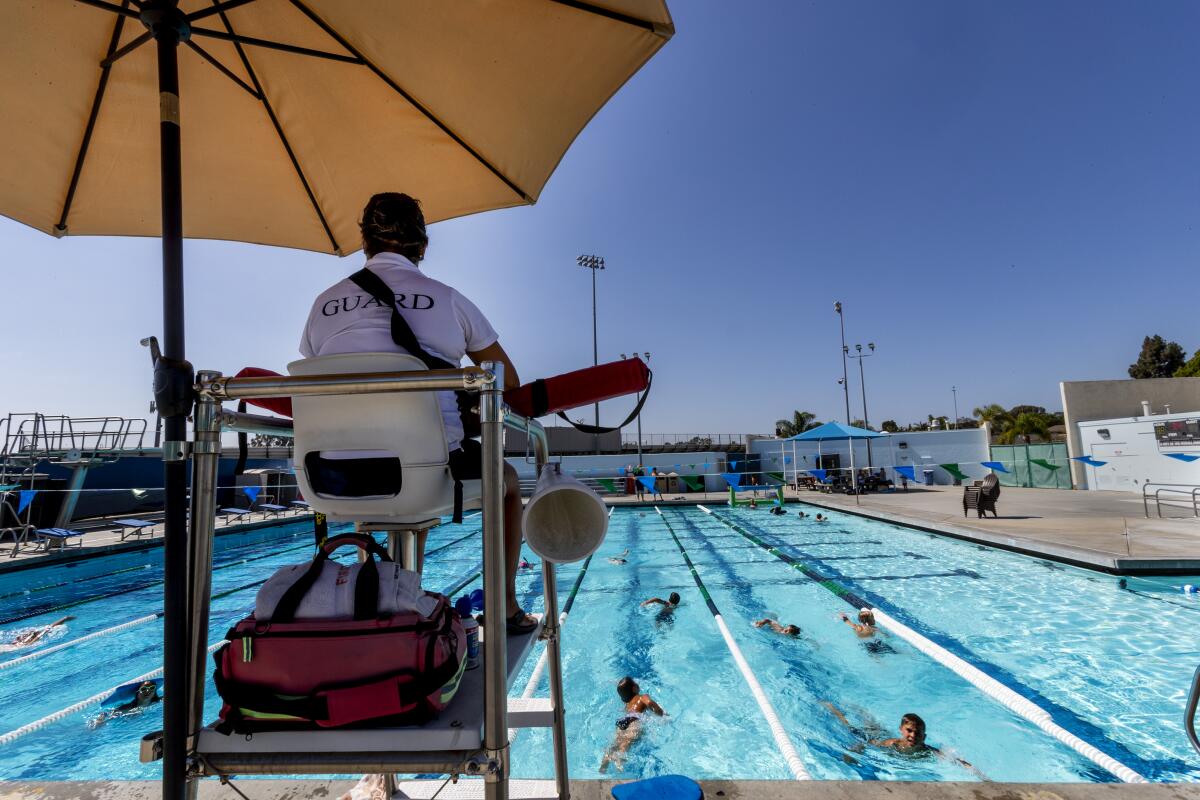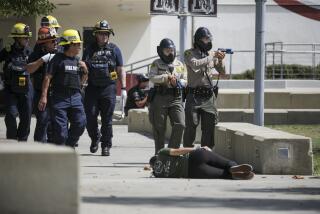Newsom signs bill to rescue pools closed by lifeguard shortage

SACRAMENTO — Gov. Gavin Newsom signed a bill Tuesday that will make it easier for local governments to fill lifeguard positions following a summer in which labor shortages closed much-needed public pools.
Assembly Bill 1672 by Assemblymember Tasha Boerner Horvath (D-Carlsbad) will ease certification requirements and allow more rigorously trained ocean lifeguards to work at city pools when there are staffing shortages. The bill was co-sponsored by the city of Carlsbad, which struggled to keep its pools open this summer due to too few lifeguards.
Industry experts have blamed recent labor pool shortages among lifeguards on the disruption of temporary shutdowns during the COVID-19 pandemic.
“I suspect people are making other life choices,” Boerner Horvath said previously. “They’re getting their degrees or going into other industries. I mean, you’re seeing this across the board.”
Lifeguard shortages have been felt across the United States, with one estimate finding one-third of the public pools across the country faced staffing shortages that threatened to close down or reduce operations this summer.
“The shortage of lifeguards due to the pandemic is impacting recreational activities in community pools,” Horvath said in a bill analysis. “Cities are forced to implement seasonal pool closures, reduce weekly hours of operation, and find creative ways to provide lifeguarding services to protect the public.”
Newsom, whose signature comes days after the state faced an unprecedented heat wave, signed the bill without comment. AB 1672 allows a local government that is certified by the United States Lifesaving Assn. to hire ocean lifeguards during staffing shortages for up to 12 months.
California previously did not allow an open water lifeguard to take a job at a local pool or aquatics center because each require different certifications. Pool lifeguards are certified through a training program managed by the American Red Cross or YMCA of the U.S.A.
Ocean lifeguards, which undergo highly rigorous training and are generally better paid than their counterparts, are certified by the United States Lifesaving Assn.
More to Read
Sign up for Essential California
The most important California stories and recommendations in your inbox every morning.
You may occasionally receive promotional content from the Los Angeles Times.











